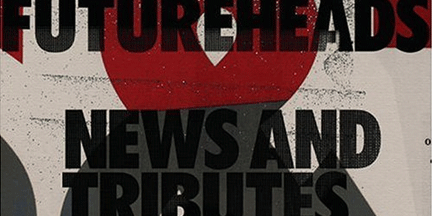
“Skip to the End”
from the album News and Tributes
2006
iTunes
Download an MP3 of “Skip to the End” from Insound.com
[right-click/save-as]
A couple of years ago, the Futureheads came in on a wave of post-punk-influenced bands that created the illusion of a movement. Bands like Franz Ferdinand, Bloc Party, and Maximo Park — while distinct — benefitted from the marketability of a “scene.” Critics and fans tended to line them up, and while “Take Me Out” surged to the top of the charts, the Futureheads claimed a memorable spot with “Decent Days and Nights” and their exceptional take on Kate Bush’s “Hounds of Love.” With the push of that sound having abated, these bands are left on their own; they’ve lost the broad commercial advantages, but gained the freedom to avoid such immediate comparisons.
The Futureheads have never been formulaic, and with News and Tributes, they might be the most well-served by the discrete position of release of a follow-up. The group certainly leans on punkish guitars from the more rock side of new wave, but they also bring full-band vocal complexities that should serve them just as well on any given album as they did as a differentiating factor on their self-titled debut. This time around, the harmonies are less striking, but add a fullness to the group’s sound. For example, “Worry About It Later” alternates solo and group vocals. The effect builds the song into an anthem, while also creating and inviting intimacy, the appearance of the small choir suggesting that the “we” of the lyric includes the listener.
The band isn’t a charming barbershop group or anything, though, and they don’t hesitate to be more abrasive. “Return of the Beserker” starts out with a relatively rowdy guitar part, and the rest of the band comes in hard to insist upon the title’s accuracy. The music builds over the effect-treated vocals, and a second guitar brings in an alarm before the Futureheads break down into an exciting stretch of noise rock that still retains the album’s brightness. One of the band’s key elements is a willingness to take their songs in unexpected directions. They’ve planned this track out well so that the shift isn’t jarring, but it’s very effective amid the pop tracks.
The final burst also makes the smooth openness of following track, “Back to the Sea,” that much more effective. The narrator on this Jam-influenced number refuses to make the titular travel with his significant, recognizing that the real root of their relationship troubles doesn’t lie in geography. Following the noise of “Return,” the narrator sounds intentionally restrained — he’s taking a stand but he’s not raising his voice. The quick peaks and sudden returns of the chorus reveal the emotional struggle taking place, and lead us toward a greater empathy than if the group had just fully turned loose.
Of course, we don’t need all these songs to know that the Futureheads take themselves in various directions. The album opens with the band giving advice, “In some cases, yes/ In most cases, no,” and the chorus tries for an anthemic repetition of “Yes! No!” The song, incidentally, is called “Yes/No” and makes itself ostensibly brainless, which the Futureheads convert into direct fun. Discussions about what is or isn’t smart structured around poetic enjambment merely imply that there’s more to come than monosyllabic shouting without denying us the pleasure of that sort of catharsis. Try it: Yes! See?
For all their structured art and tight performances, the Futureheads aren’t a band to hold anything back (except when they use restraint to heighten emotional tension). Whether it’s the jumpy “Yes/No” or the blast of “Return of the Beserker” or the group struggle of “Worry About It Later,” they’re here to get you moving along with them. They even offer some advice along the way, but you should ignore at least one suggestion. There’s no need to “skip to the end.”


